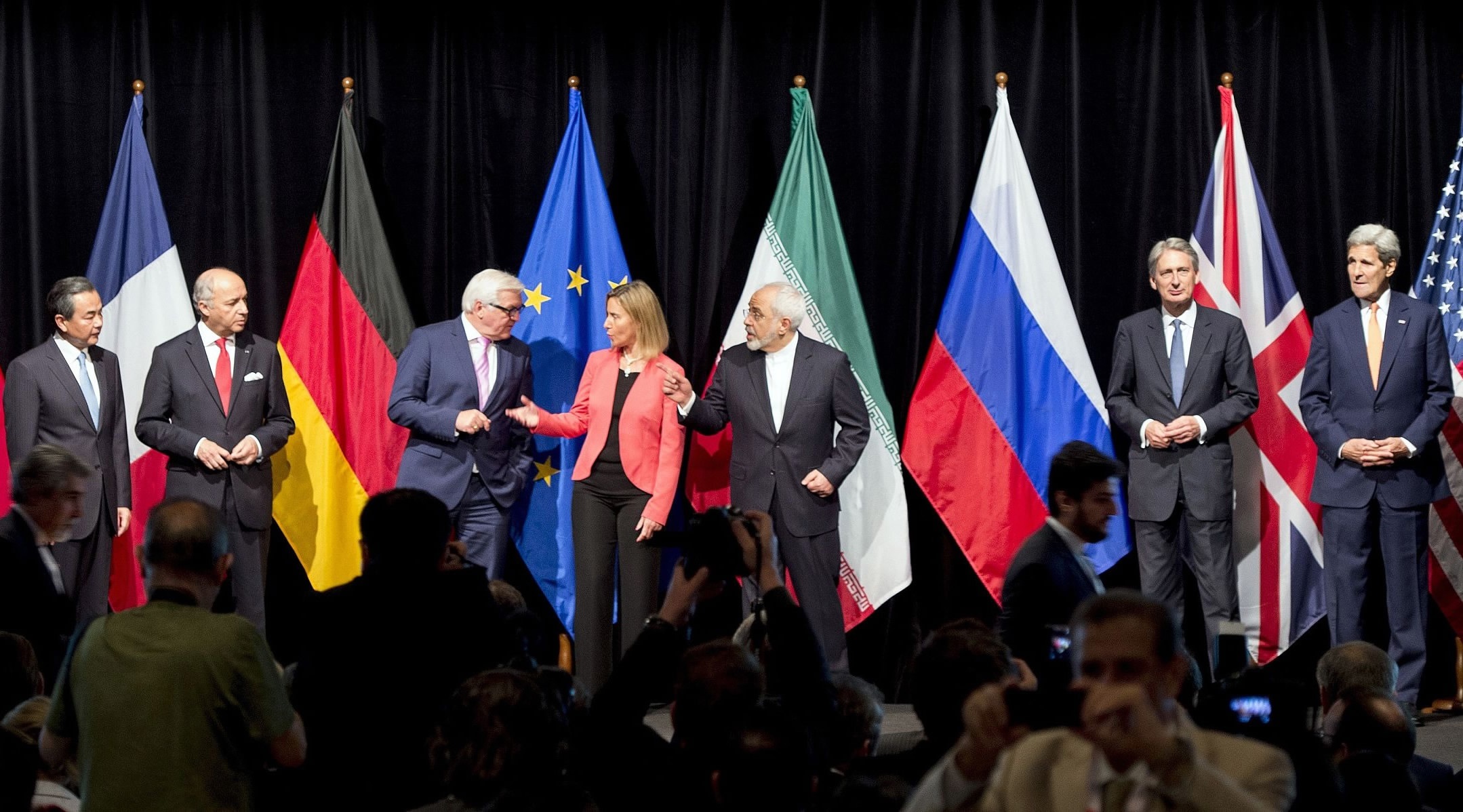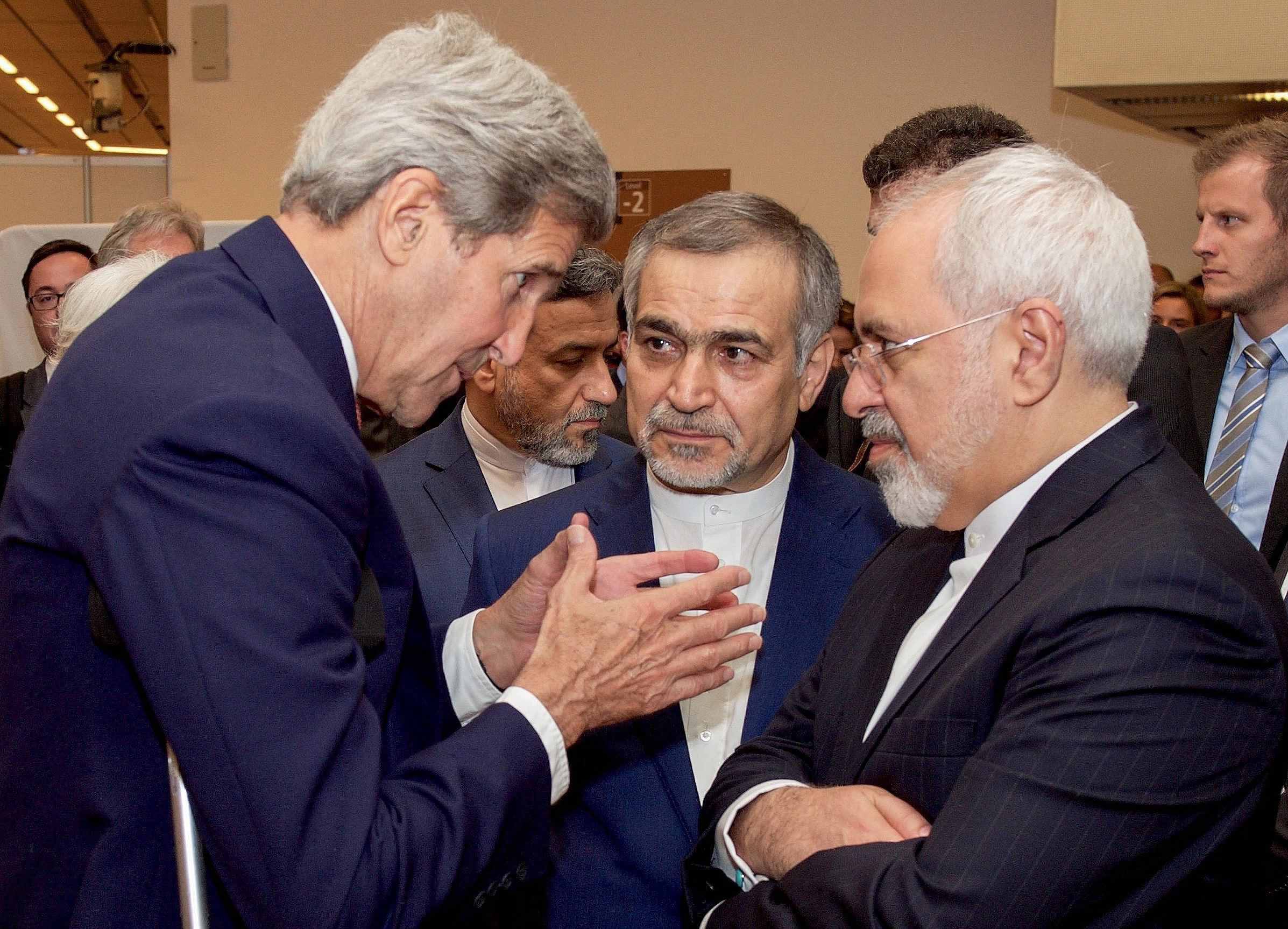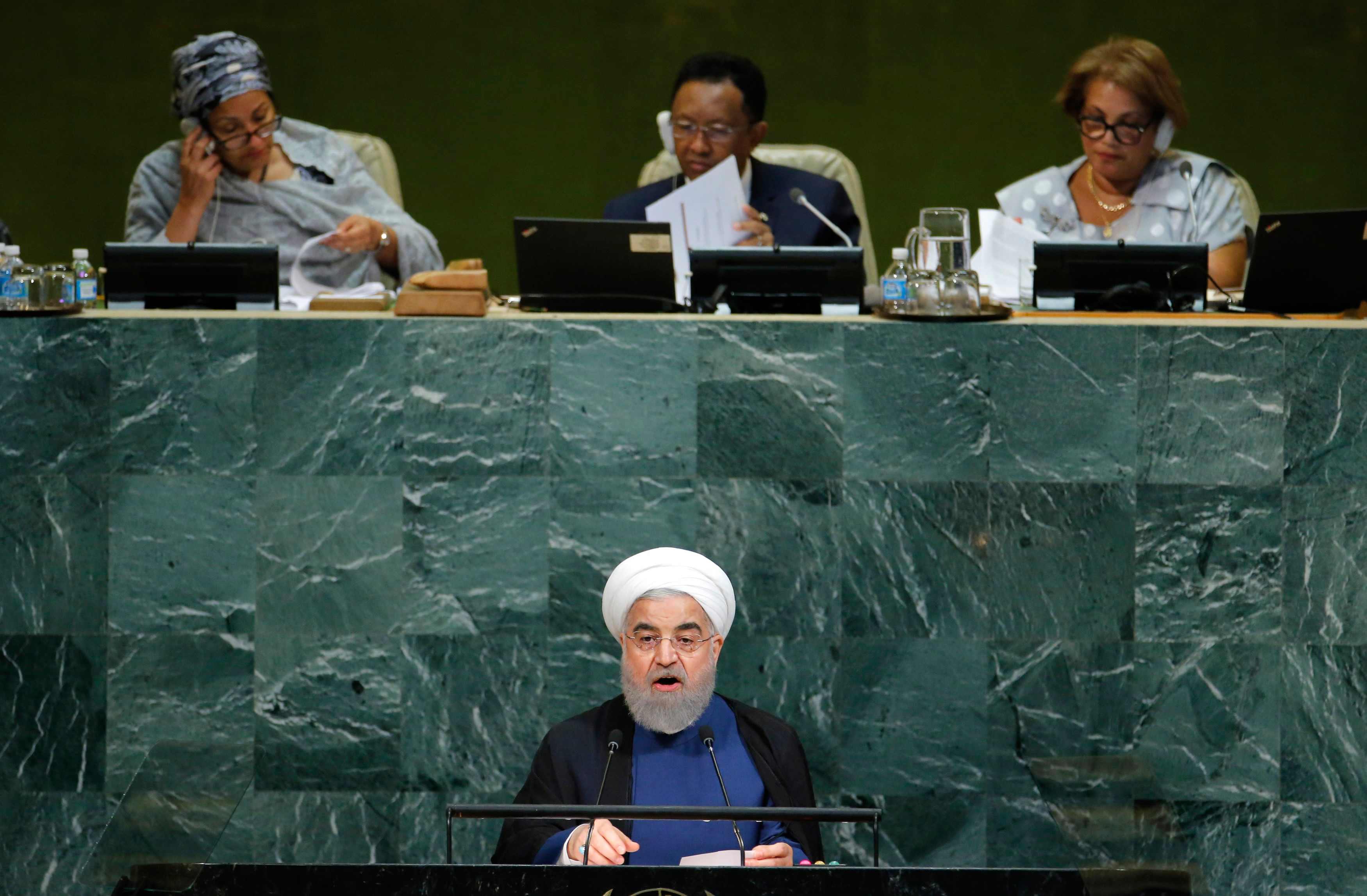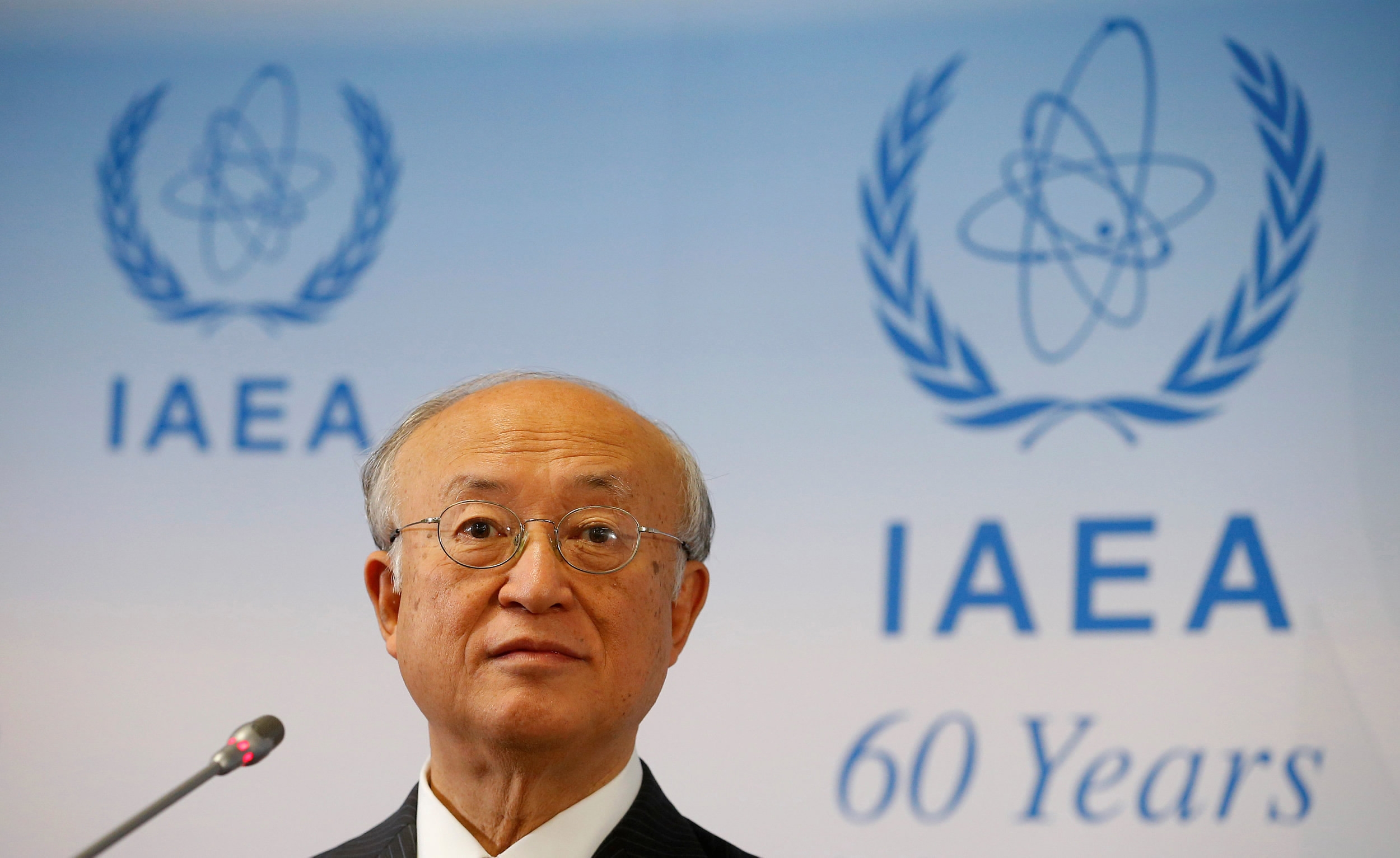
World
15:41, 06-Oct-2017
Explainer: What is the Iran nuclear deal?
Updated
16:52, 14-Jul-2018
By Sim Sim Wissgott

On July 14, 2015, six world powers struck a historic deal with Iran regarding its nuclear drive.
Since the US announced earlier this year that it was pulling out of the agreement however, its future has been in doubt.
So what is the deal about and why was it agreed in the first place?
Who, when, where?
The deal was struck on July 14, 2015 in Vienna, Austria by Iran and the so-called EU3+3 powers: EU members France, Germany and Britain, plus the US, Russia and China.
Known as the Joint Comprehensive Plan of Action (JCPOA), it was the culmination of a decade of talks aimed at reining in Iran’s nuclear program, and was welcomed as a historic move by its signatories.
On May 8, 2018, however, US President Donald Trump announced that Washington was withdrawing from the deal, and reimposing tough economic sanctions on Tehran.

Then US Secretary of State John Kerry (L) speaks with Hossein Fereydoun (C), the brother of Iranian President Hassan Rouhani, and Iranian Foreign Minister Javad Zarif (R) at the Austria Center in Vienna, Austria, July 14, 2015. /VCG Photo
Then US Secretary of State John Kerry (L) speaks with Hossein Fereydoun (C), the brother of Iranian President Hassan Rouhani, and Iranian Foreign Minister Javad Zarif (R) at the Austria Center in Vienna, Austria, July 14, 2015. /VCG Photo
What is the deal about?
Iran consistently maintained that its nuclear program was for purely peaceful, civilian purposes but Western powers were concerned it was seeking to build a bomb.
Under the deal, Tehran pledged "that under no circumstances will Iran ever seek, develop or acquire any nuclear weapons."
Concretely, Iran agreed to limit its uranium enrichment activities and vowed to start phasing out certain centrifuges. It also promised to turn its enrichment facility at Fordow into a science and technology center.
All these provisions would ensure that Iran could not build an atomic bomb in a short amount of time.

Iranian President Hassan Rouhani addresses the 72nd United Nations General
Assembly at UN headquarters in New York, US, September 20, 2017. /Reuters Photo
Iranian President Hassan Rouhani addresses the 72nd United Nations General Assembly at UN headquarters in New York, US, September 20, 2017. /Reuters Photo
In exchange, UN, US and EU sanctions against Iran including on oil, financial institutions, precious metals and the Iranian currency – were lifted.
Has Iran been keeping up its end of the deal?
Iran’s compliance is being monitored by the UN’s atomic watchdog – the International Atomic Energy Agency (IAEA) – which conducts regular inspections, including at short notice, of Tehran’s nuclear facilities and publishes its findings.
In its latest report in May 2018, the IAEA said Iran was keeping up its end of the deal, despite the US pull-out.
Stocks of low-enriched uranium – which, when further processed, could be used in a bomb – remained under the agreed limit of 300 kilograms, no uranium had been enriched above set purity levels and no additional centrifuges had been installed in its facilities.

International Atomic Energy Agency (IAEA) Director General Yukiya Amano addresses a news conference after a board of governors meeting at the IAEA headquarters in Vienna, Austria on June 12, 2017. /VCG Photo
International Atomic Energy Agency (IAEA) Director General Yukiya Amano addresses a news conference after a board of governors meeting at the IAEA headquarters in Vienna, Austria on June 12, 2017. /VCG Photo
On June 9, IAEA chief Yukiya Amano told member states gathered in Vienna: "The Agency has conducted complementary accesses... to all the sites and locations in Iran which we needed to visit."
But he also urged: "Timely and proactive cooperation by Iran in providing such access would facilitate implementation of the Additional Protocol and enhance confidence."
What happens if it doesn’t comply?
If Iran breaches the nuclear deal, sanctions will reportedly "snap back" into place automatically.
But the JCPOA also noted that Iran would treat the re-imposition of old sanctions, or imposition of new ones, "as grounds to cease performing its commitments under this JCPOA" – in other words, to stop complying.
On July 6, Iranian Foreign Minister Mohammad Javad Zarif tweeted: "Make no mistake: Sanctions & JCPOA compliance are mutually exclusive."
At a meeting in Vienna however, the JCPOA partners – minus the US – renewed their commitment to the deal, and Zarif praised their "will to resist" pressure from Washington.
Despite the US pulling out and imposing sanctions on Tehran, the deal remains in place for now.
7471km

SITEMAP
Copyright © 2018 CGTN. Beijing ICP prepared NO.16065310-3
Copyright © 2018 CGTN. Beijing ICP prepared NO.16065310-3